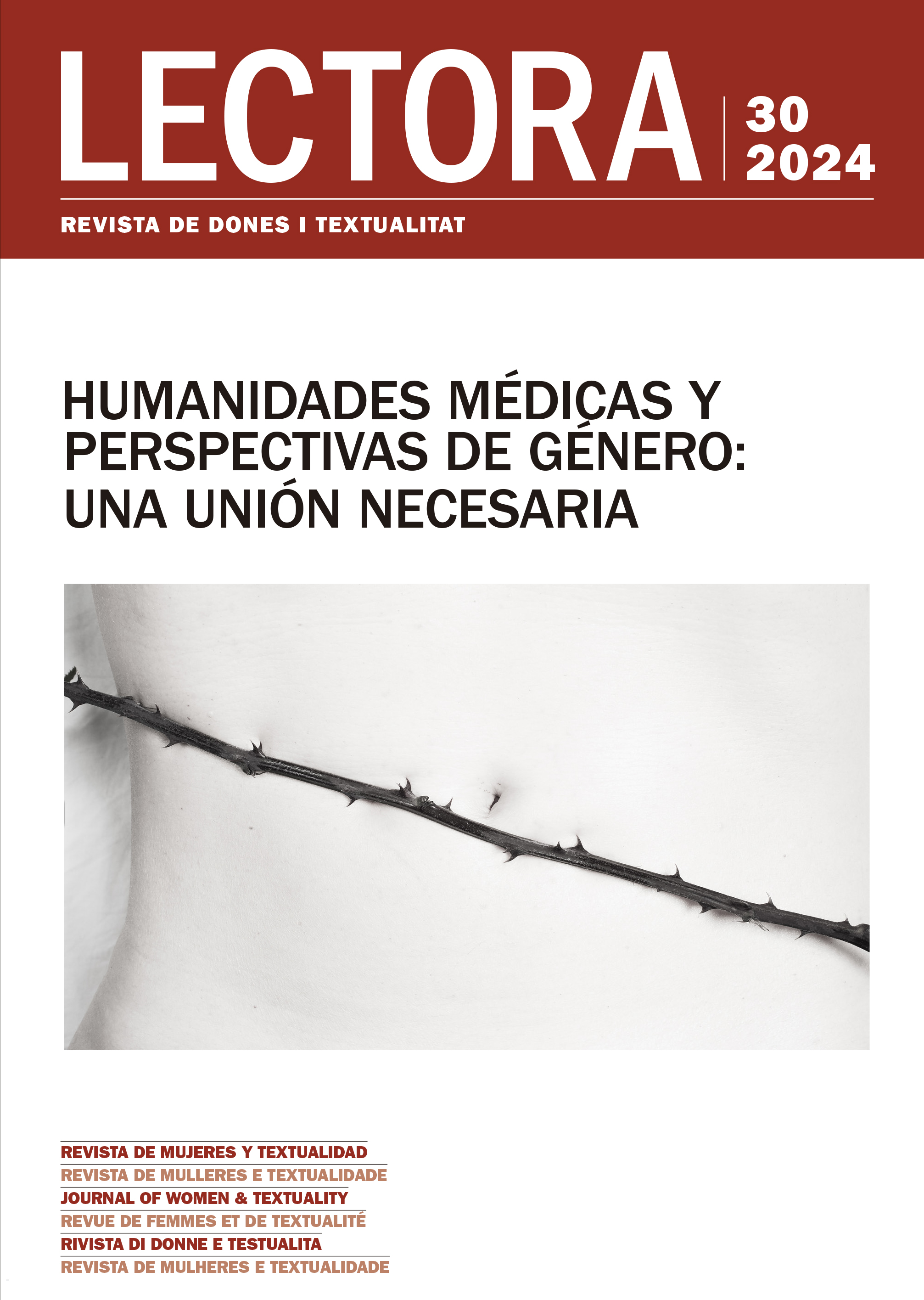Body Unbound: Poetry of Illness, Gender, and Disability in torrin a. greathouse’s Wound from the Mouth of a Wound (2020)
DOI:
https://doi.org/10.1344/Lectora2024.30.6Keywords:
medicine, gender, disability, ableism, poetryAbstract
torrin a. greathouse’sdebut poetry collection Wound from the Mouth of a Wound (2020) articulates the oblique language of pain, trauma, and suffering emanating from the flesh. greathouse’s poetry of the wounded body deals with the impact of the gender and ableist biases contained in medical, social, and cultural discourses on her identity as a chronically ill and disabled trans woman. The analysis of a selection of her poems reveals her pains-taking deconstruction of the male/female, ability/disability, healthy/ill, and normal/ab-normal binaries that govern her world. This poet unbindsa body whose gender and poten-tial are hidden behind the dominant biomedical essentialism, diagnostic terms, and tenta-tive treatments, reflecting on the analogous medicalisation of disability, illness, transgen-derism, and trauma. greathouse poetises her reconciliation with a body oppressed by the dominant discourses that regard trans and disabled bodies only in terms of deficiency and imperfection.
Downloads
Published
How to Cite
Issue
Section
License
Copyright (c) 2024 Shadia Abdel-Rahman Téllez

This work is licensed under a Creative Commons Attribution-NonCommercial-NoDerivatives 4.0 International License.
The Author retains ownership of the copyright in this article and grants Lectora: revista de dones i textualitat the rights to print publication of the Article. The work will be available under a Creative Commons Attribution-Noncommercial-No Derivative Works license, by which the article must be credited to the Author and the Journal be credited as first place of publication.
The Author is free to enter in seperate, additional contractual agreements for the non-exclusive distribution of the work as published in this journal (such as institutional repositories or a book), as long as the original publication in Lectora is credited.
The Author is encouraged to post the work online (eg in institutional or thematic repositories, or in their website), as it can lead to productive exchanges as well as to a greater citation of the published work (see The Effect of Open Access).




